HBO’s LGBT History: If These Walls Could Talk 2 (2000)
 Wednesday, July 8, 2015 at 11:30AM
Wednesday, July 8, 2015 at 11:30AM
Manuel is working his way through all the LGBT-themed HBO productions...
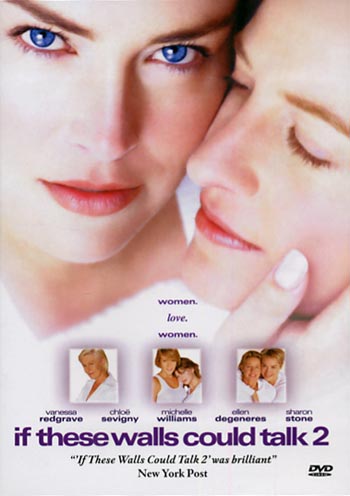 Last week we looked at a number of HBO TV episodes from 1998 (wasn't '98 the gayest?) that gave us a broader cross-section of gay men on screen than the AIDS victim/activist/mourner trifecta we had so grown used to in the HBO films of the early 1990s. Today, we turn our attention to HBO’s first openly didactic piece of LGBT filmmaking with an anthology film helmed by a group of female writers and directors that aimed to trace a (narrow) history of the (white) lesbian experience in the twentieth century.
Last week we looked at a number of HBO TV episodes from 1998 (wasn't '98 the gayest?) that gave us a broader cross-section of gay men on screen than the AIDS victim/activist/mourner trifecta we had so grown used to in the HBO films of the early 1990s. Today, we turn our attention to HBO’s first openly didactic piece of LGBT filmmaking with an anthology film helmed by a group of female writers and directors that aimed to trace a (narrow) history of the (white) lesbian experience in the twentieth century.
If These Walls Could Talk 2, much like the anthology film that gives it its name (they’re not really sequels per se, the first dealing with unwanted pregnancies), is comprised of three stories set in the same house and dealing with the same issue: namely, lesbianism. Taken together, the three short films that make up the piece (set in 1961, 1972 and 2000) track a by now familiar narrative of lesbian representation. The melodrama of the early 1960s, steeped in silence and euphemisms, gives way to a romance set against the backdrop of the vexed relationship between lesbians and feminism in the 70s, ending in a “new normal” vision of lesbian parenthood. Schematically we move from a couple to a community and then to a family. A fascinating progression but one which seems much too facile, especially when the first entry is by far its most rewarding. [More...]
If These Walls Could Talk 2
[Watch on YouTube, or get the DVD. What is it with these films being so hard to stream?]
There are probably more didactic ways of opening a film about lesbians than Melissa Etheridge’s “Mama I’m Strange” but I can’t think of any. That choice alone — the song scores a montage that includes images of Jackie Kennedy, Hilary Clinton, Matthew Shepard, rainbow flags, Billie Jean King, and pride parades — tips you off quite early to what kind of film If These Walls Could Talk 2 wants to be. The film was after all produced by Ellen DeGeneres, the de facto poster girl for mainstream lesbians for the better part of the late 90s. Indeed, every segment is preceded by a mini-montage set to an appropriately on-the-nose song that helps set the mood for the narrative that follows. Thankfully, there is some nuance and some beautiful performances in between.
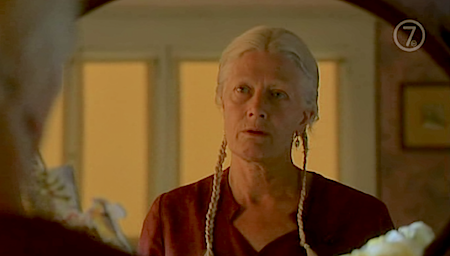
1961
(“Que Sera, Sera” - Doris Day)
Written & Directed by: Jane Anderson
Starring: Vanessa Redgrave, Marian Seldes, Paul Giamatti, Elizabeth Perkins
We open with The Children’s Hour and I really shouldn’t have to tell you more to claim that that alone makes this the best segment by far but I will anyway. That coded lesbian film, featuring Shirley MacLaine and Audrey Hepburn, becomes a thematic and stylistic thorough line for this tender look at Edith Tree (Vanessa Redgrave, resplendent!) as she navigates a world without her longtime “friend” Abby (Marian Seldes). Lifelong silences, tacit understandings, unspoken agreements, and half-acknowledged truths come tumbling down once Abby’s nephew — the now legal owner of the house the two women shared together — makes it clear he’s set to sell the property, giving little credit to the life and home the two had built there together. Redgrave’s Edith is equal parts stoic and melancholy, her bouts of grief and indignation are all the more heartbreaking for the way she masks them with the pragmatism of someone who’s long learnt to not to draw attention to her own life’s desires outside of her own home. We’ll be revisiting Jane Anderson’s later HBO film, Normal, in a few weeks but all I want to do now is seek out everything else she's done (did you know she co-wrote a Mad Men episode!?); that’s how much I enjoyed this beautiful piece.
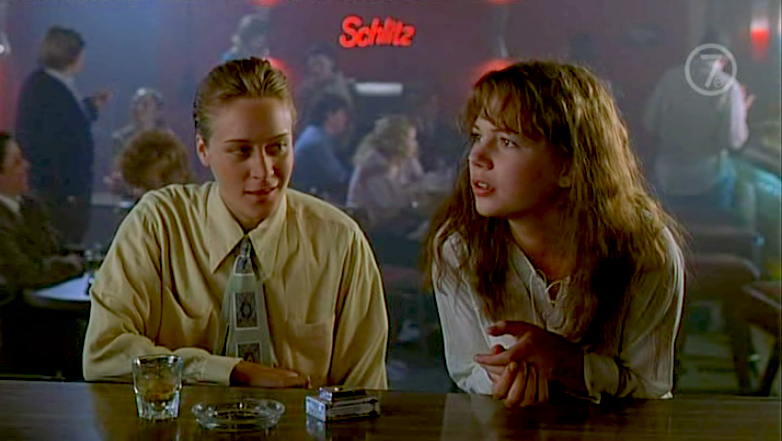
1972
(“Something in the Air” - Thunderclap Newman)
Directed by: Martha Coolidge
Written by: Sylvia Sichel (“1972”)
Starring: Michelle Williams, Chloe Sevigny, Nia Long, Natasha Lyonne (“1972”)
This 1972 segment, featuring a young Michelle Williams (two years into Dawson’s Creek and giving hints that she had bigger ambitions than becoming a teen drama sensation) and a post-Boys Don’t Cry Chloe Sevigny (as well as a blink-and-you’ll-miss-her Rashida Jones!) is a fascinating exploration of the failings of second wave feminism — especially in the way it tried to throw the baby with the water when it came to gender norms. Inexplicably drawn to Amy (Sevigny), a butch lesbian she meets at a dyke bar, Linda (Williams) must come to terms with how her lesbian feminist roommates (themselves outcasts from the official feminist group on campus for the way their sexuality didn’t square well with the tenets of female emancipation) cannot fathom squaring the masculine gender performance of Amy with the lesbian liberation they suscribe to. Williams and Sevigny’s chemistry anchors what would otherwise be a heady academic debate more at home in a Women’s Studies course than in a film, making the stakes (whether to wear a tie, say) both impossibly small and irrevocably large.
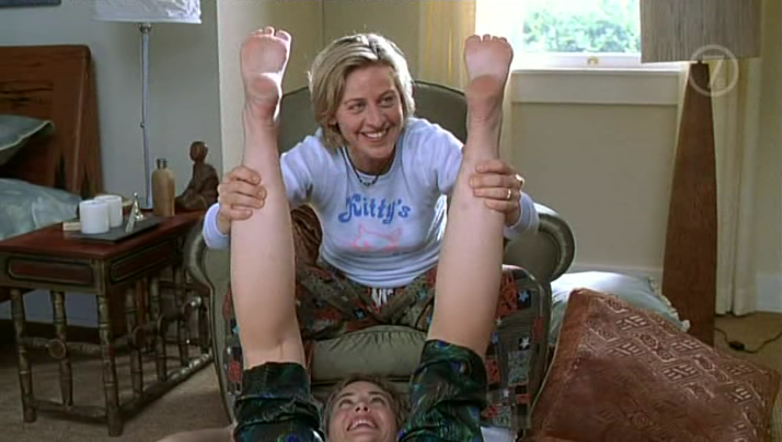
2000
(“Closer to Fine” - The Indigo Girls)
Written & Directed by: Anne Heche
Starring: Ellen DeGeneres, Sharon Stone, Regina King and Kathy Najimy.
What to say about Anne Heche’s segment about a lesbian couple’s decision to pursue artificial insemination? If “1961” is a tender melodrama of quiet desperation and “1972” is a spunky opposites attract heady piece about feminism, “2000” is a quirky comedy that plays much too broad (and oddly enough, much too narrow) to succeed. There is very little that works here: Stone (playing the Heche role, one assumes) is left to contort herself into awkward cutesy poses wearing all kinds of ridiculous outfits while playing dumb wife to Ellen’s even-keeled if slightly exasperated Kal. It has all the trappings of a passion project without any discernible payoff. Even in comparison with the other two segments, which at least strive to locate their archetypal couples in conversation with a contemporaneous community around them (the family of the deceased, the feminist groups on campus), Heche’s Kal and Fran seem to exist in some sort of sitcom bubble where issues of finances, privilege, prejudice, and other petty material concerns are not only irrelevant but nonexistent.
I know they stand on their own and the narratives I’m extrapolating have more to do with their contiguity (rather than any planned teleology) but I think it’s telling that each segment's final images move us from an open window (a haunting image full of possibility, of hope), to a closed door (with its promise of newfound intimacy), to a bathroom dance party celebrating the long-fought pregnancy of an affluent white lesbian couple. But perhaps I'm being a tad too hard on the film? Anyone willing to persuade me onto Heche's directorial talents or hector me on my allergic reaction to a mostly white-only cast (hey there Nia Long and Regina King!) intent on representing a vibrant and diverse community?
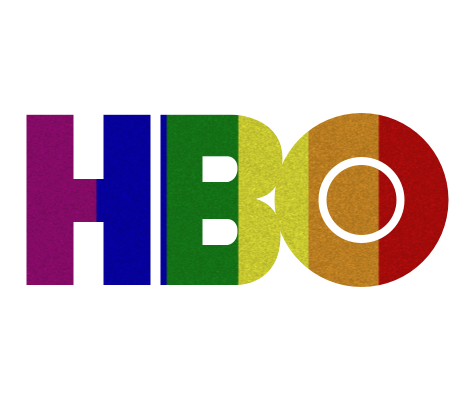
Fun Awards Fact: Vanessa Redgrave, the obvious MVP of the piece, won a Golden Globe, an Emmy and a SAG Award for her portrayal of Edith Tree, beating an impressive roster of ladies in doing so, including Stockard Channing (nominated for a SAG Award for her performance in the lesbian coming of age film The Truth About Jane), Kim Cattrall, Cynthia Nixon and Megan Mullally (nominated for Golden Globes for their iconic and gay-friendly roles in Sex and the City and Will & Grace, respectively), Kathy Bates (nominated for an Emmy for her performance in Annie), Maggie Smith and Sally Field (the former nominated for an Emmy, the latter for a SAG, for their performance of “Betsey Trotwood” in competing TV movie adaptations of David Copperfield) and Judi Dench (who’d become an awards magnet by then and won a SAG nomination for her work in The Last of the Blonde Bombshells, a film I had to look up to prove it was a real thing).
Next week: As if hearing my pleas for a more intersectional take on lesbian identity, HBO followed up If These Walls Could Talk 2 with the work of another out female director whose raw sensibility created one of the most striking and arresting films I’ve yet to encounter in this series. For those who haven’t seen Cheryl Dunye’s prison-set Stranger Inside [watch here], I urge you to seek it out. I’ll have more to say about it next week, but Dunye’s work deserves a wider audience!



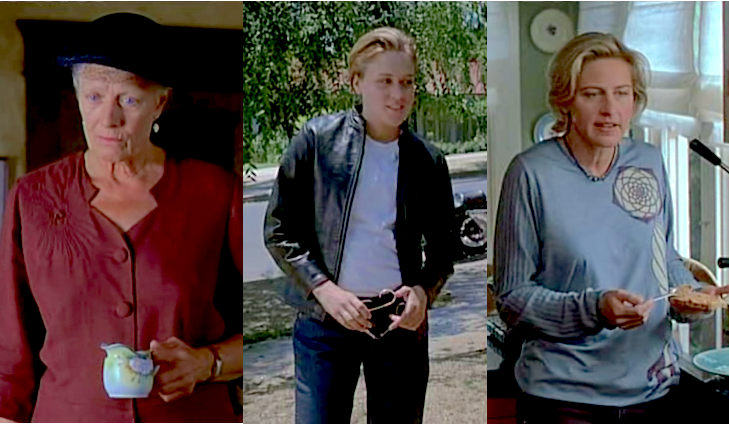
Reader Comments (10)
Good for Michelle Williams. That's not the typical project for a teen star of a show like "Dawson's Creek." Even though Katie Holmes was the breakout star, there was something about Williams and her work - quiet, unshowy but committed - that I always admired. And she's been making really interesting choices ever since.
Redgrave's performance is so powerful I believe if those who oppose gay marriage watched her segment, they might as well change their minds about it. It is so lived in, so detailed. One of my favorites of her performances, which is a huge deal, considering the actress in question. I love the montage in which she rearranges her personal belongings to make it seem they slept in different rooms before her deceased partner's nephew arrives. It is fascinating the amount of emotion she has to conceal throughout, which goes to show how often a great performance lies in what is not being shown. A true acting master class from one of my favorites.
Great read, Manuel!
I only saw this once around the time it aired and have never forgotten the power of Vanessa Redgrave's work in that. What an unqualified acting triumph that was. I don't remember the other two pieces of this at all though the cast on the second segment makes me curious
strangely i went online and tried to find video or images of Redgrave accepting any of those many prizes and couldn't. Maybe she didn't go to the awards shows? which is strange because she was there for her Tony and her Oscar.
The only thing I remember about this is Ellen on a talk show discussing how, as a producer, she had to watch her own sex scenes with Sharon Stone and that it made her completely understand why people make their own sex tapes.
Redgrave missed at least a couple of those (I can't recall if she missed the Emmy, but I'm positive she missed the SAG and Globe).
Vanessa deserved every single award she won. Spectacular work.
Vanessa Redgrave WON the Emmy for this performance, and it was well deserved! Show some respect.
just being reminded of vanessa redgrave's performance made my heart ache
[and, like nathaniel, i have no memory at all of the other two segments]
Had this been released in the cinema, Redgrave wld have won the Oscar too!! She's sooo touching and wonderful...never overplay her grief or draw attention to her plight, but subtly hinted at the sorrow & pain she had to endure...A masterclass in acting!!